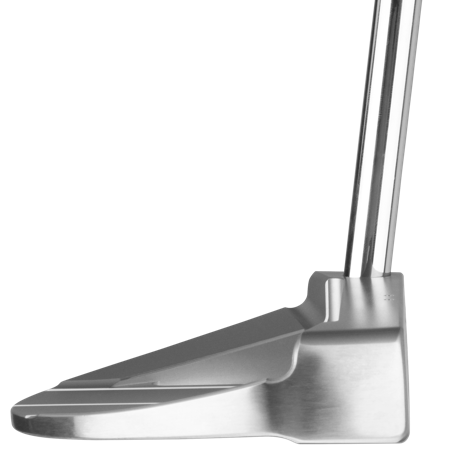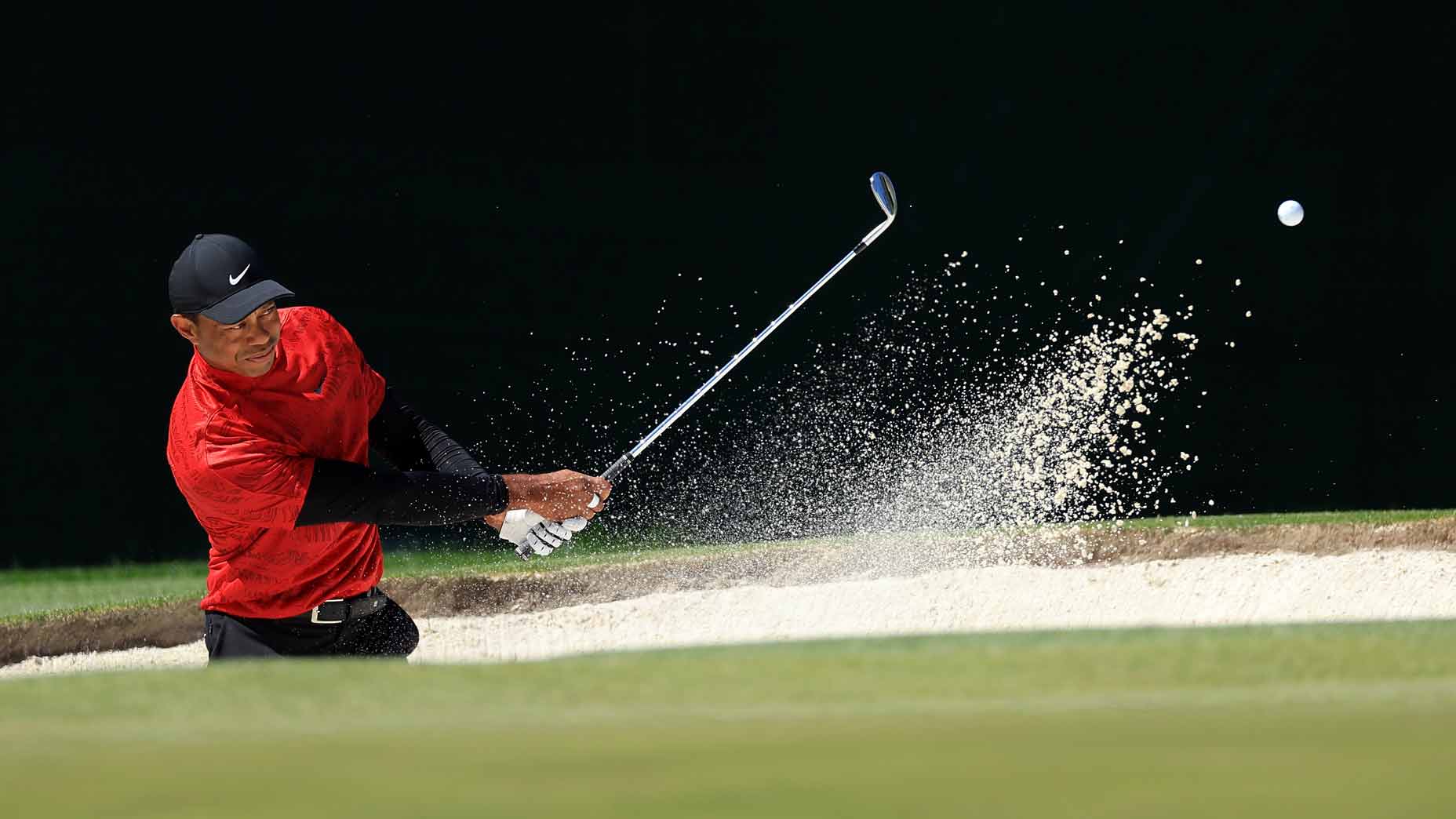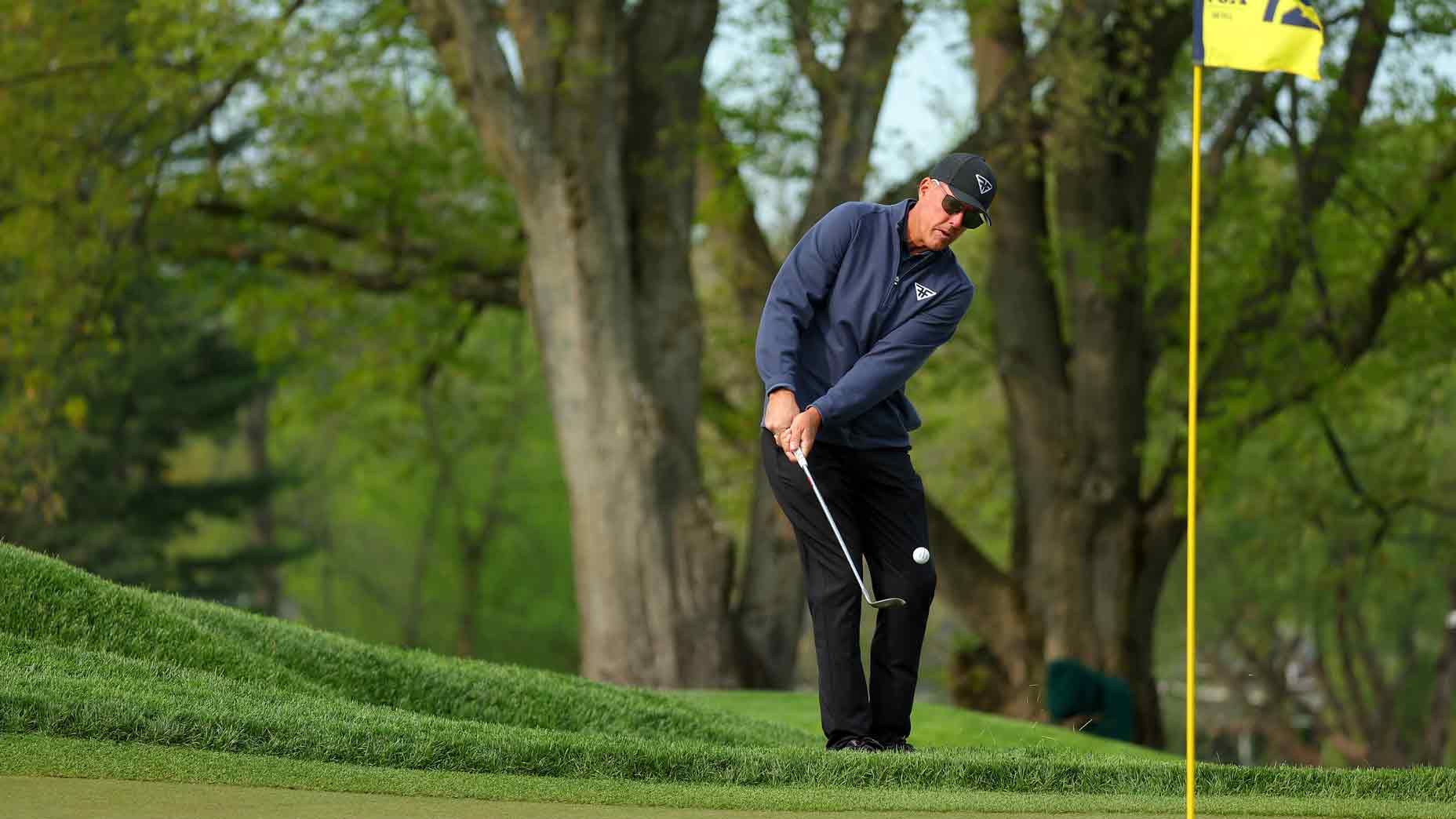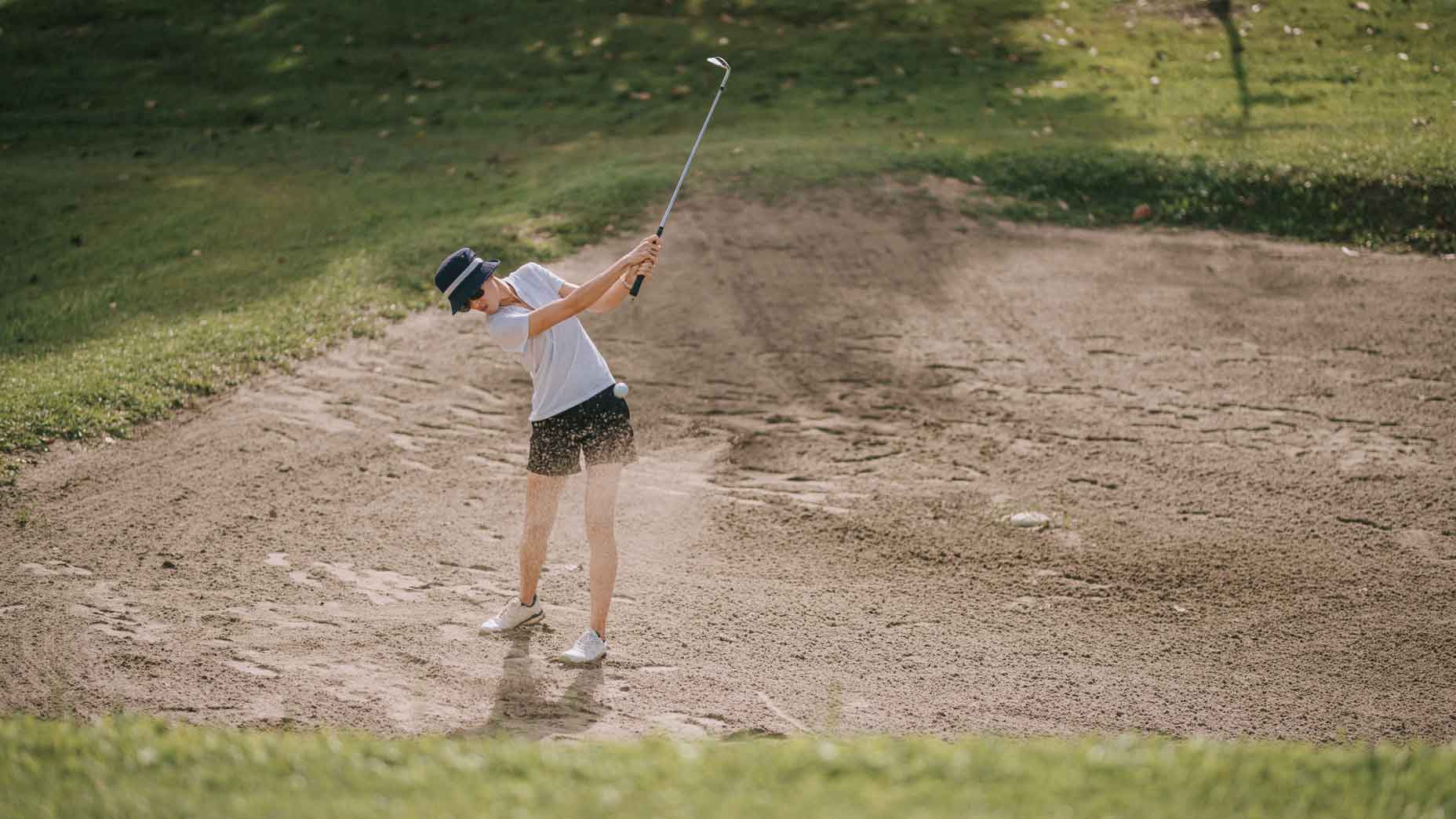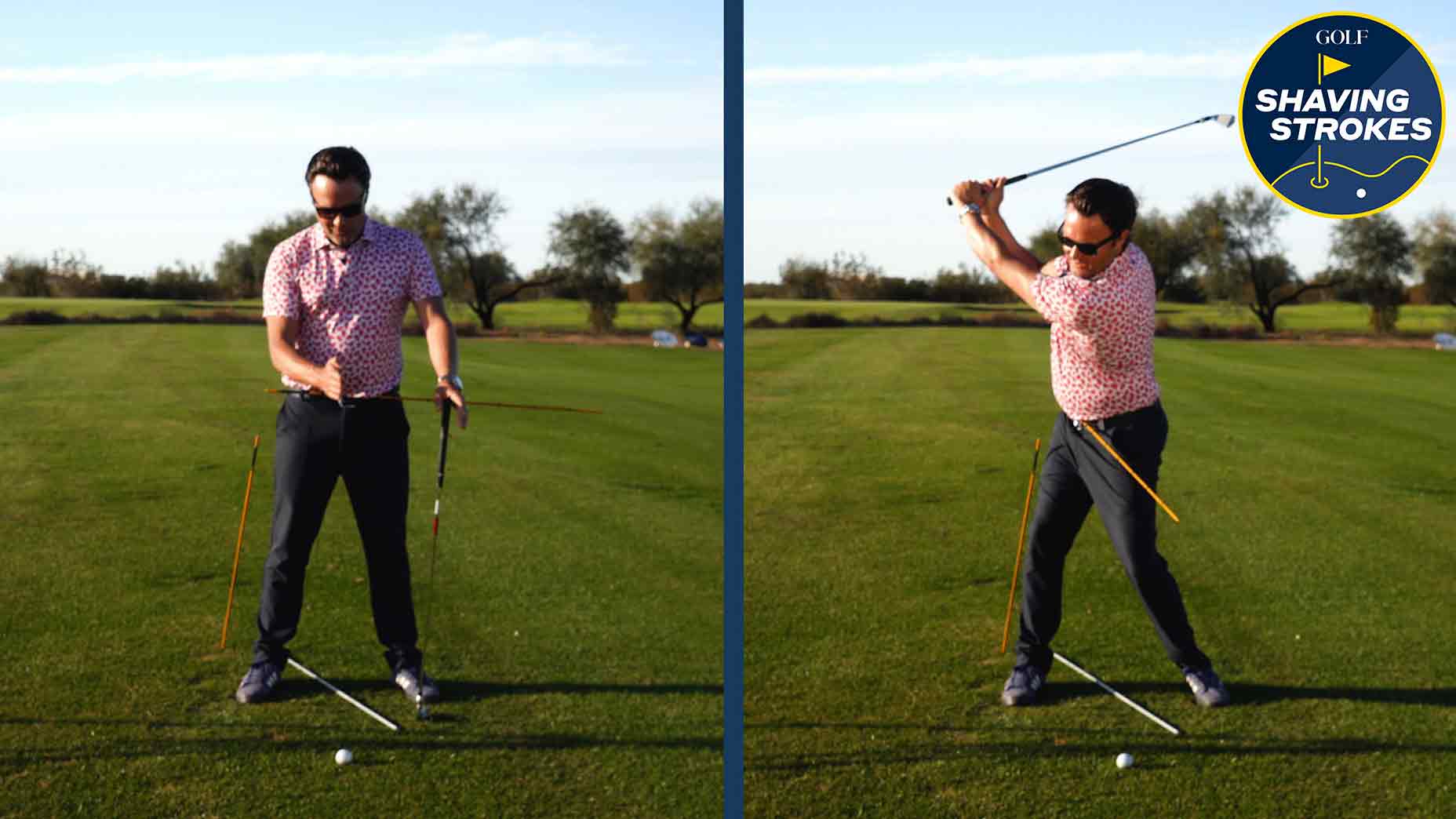How to stop slicing and shallow out your swing, according to Top 100 Teachers

A steep swing can be a killer on the course, so we asked a few GOLF Top 100 Teachers how to shallow it out.
Getty Images
A steep angle of attack can be a golf-swing killer. Worse yet, it’s one of the most common flaws recreational golfers make.
From the top of the swing, far too many players come over the top and cut across the ball at impact. The result is often a weak fade (or slice) that has very little power.
Fixing this swing flaw is no easy task, but thanks to a few GOLF Top 100 Teachers, we have a few things to help you shallow out your swing. Check out their responses below.
1. Close the clubface
The answer to the question of how to shallow your swing plane is actually surprisingly simple. You see, recreational golfers almost always compensate for an open clubface and the resulting ball flight to the right (for a right handed golfer) by swinging left. So at the top of the backswing, the slicer instinctively throws the club over-the-top which causes a steep downswing and a left path. The way to fix a “steep” swing is to fix the open clubface. Get a square or slightly closed clubface and the steep swing will automatically go away without using any special drills or training aids. —Keith Lyford
2. Start with the lower body
The easiest way to fix a steep swing is to fix your sequencing. Starting the lower body first on downswing with the arms and club trailing and reacting to lower body movement will allow you to swing optimally and with the proper sequence to correctly shallow the club. —Brian Mogg
3. Swing 30 yards right
Swing the arms approximately 30 yards to the right of your target to start your downswing. This will get your path more out to the right and force you to swing from inside to out. —Cheryl Anderson
4. Don’t hit the ground
One of the best drills to make your swing more shallow is to put a ball on a small tee and learn how to hit off the tee organically without moving the tee. If you can shallow your swing, you should be able to brush it off the tee without disturbing the tee. The goal is to not to knock the tee out of the ground, or worse: pound it into the ground. —Jamie Mulligan

